- News
- Reviews
- Bikes
- Accessories
- Accessories - misc
- Computer mounts
- Bags
- Bar ends
- Bike bags & cases
- Bottle cages
- Bottles
- Cameras
- Car racks
- Child seats
- Computers
- Glasses
- GPS units
- Helmets
- Lights - front
- Lights - rear
- Lights - sets
- Locks
- Mirrors
- Mudguards
- Racks
- Pumps & CO2 inflators
- Puncture kits
- Reflectives
- Smart watches
- Stands and racks
- Trailers
- Clothing
- Components
- Bar tape & grips
- Bottom brackets
- Brake & gear cables
- Brake & STI levers
- Brake pads & spares
- Brakes
- Cassettes & freewheels
- Chains
- Chainsets & chainrings
- Derailleurs - front
- Derailleurs - rear
- Forks
- Gear levers & shifters
- Groupsets
- Handlebars & extensions
- Headsets
- Hubs
- Inner tubes
- Pedals
- Quick releases & skewers
- Saddles
- Seatposts
- Stems
- Wheels
- Tyres
- Health, fitness and nutrition
- Tools and workshop
- Miscellaneous
- Tubeless valves
- Buyers Guides
- Features
- Forum
- Recommends
- Podcast
feature
8 reasons not to get disc brakes — find out the hassles before you switch
Disc brakes have become an increasingly important part of the road bike world over the past few years, but while the benefits of disc brakes are well documented, they bring with them challenges and problems too.
Here are some of the issues that we've experienced and heard about.
1 Disc brakes add weight
The all-up weight of a disc brake bike is higher than that of a rim brake bike.
Levers, brake callipers, hoses, fluid and rotors weigh more than an equivalent rim brake setup. Manufacturers often try to minimise the difference but don't forget that disc brake hubs are heavier too, and disc brake wheels are often built up with more spokes of a wider gauge, although the lack of a brake track means that disc-specific rims are generally lighter. The thru axles that are used with many disc systems are heavier than quick release skewers.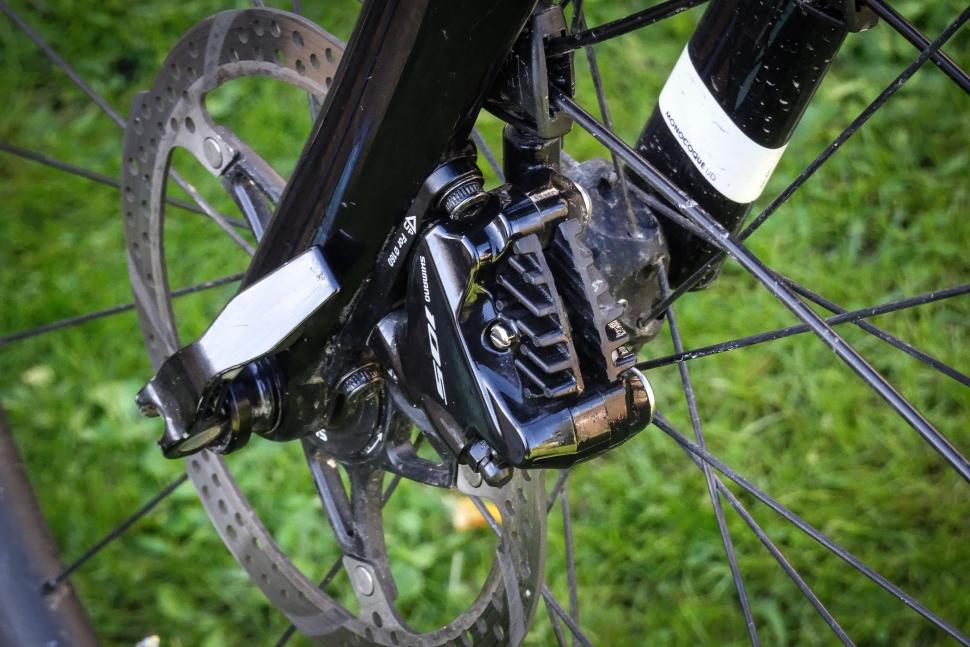
Read Everything You Need To Know About Disc Brakes
The weight difference isn't huge but it can often be around a pound over the whole bike when everything is taken into account.
2 Disc brake rub can be an issue
Early disc-equipped bikes borrowed the 74mm post mount standard from mountain bikes, where the brake calliper is simply bolted directly onto the frame or fork and adapters are used to accommodate different rotor sizes.
To try and improve the appearance of discs on road bikes, Shimano introduced its flat mount system. It’s an open standard that has been quickly adopted by other disc brake manufacturers. The vast majority of new disc brake road bikes are flat mount.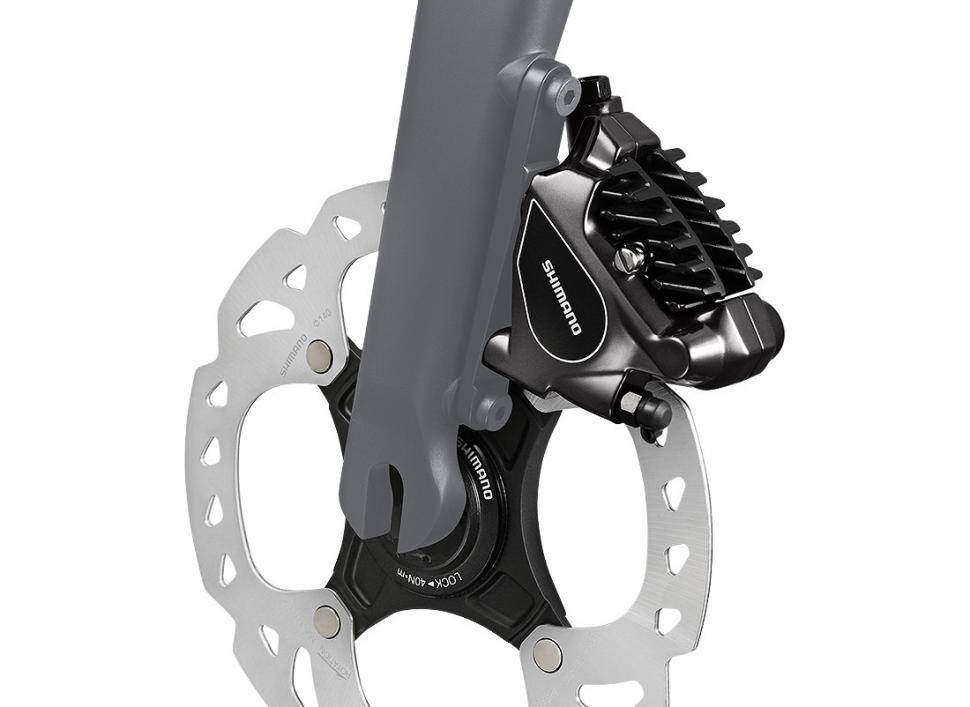
“[Flat mount offers a] smaller and more compact interface with the frame/fork for improved integration, reduced weight and better tool access for easier adjustment,” Shimano told road.cc.
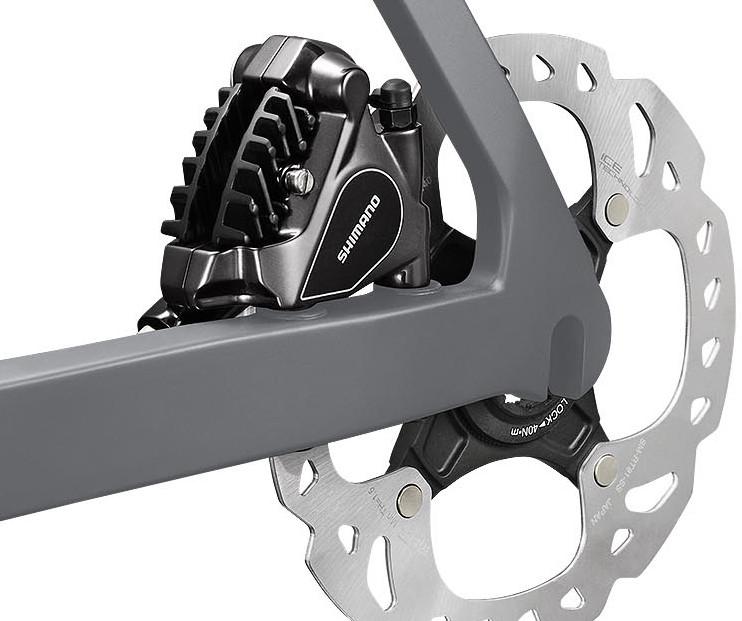
There’s no doubt flat mount disc callipers are smaller, better looking and lighter than the bulkier post mount callipers. The actual calliper mechanism is identical and there are no changes to the way the hose connects and the brake pads are installed. The key difference is in the way the calliper is mounted to the frame.
Where post mount callipers are bolted from above directly into the frame and fork, flat mount callipers sit flush with the frame and fork and the bolts are threaded in from below and directly into the calliper, pulling it down onto the frame. At the front, the calliper is fixed to a thin adapter which is bolted to the fork.
Depending on frame design and disc rotor size, post mount often needs a large and ugly adapter to provide the correct spacing over the rotor. On mountain bikes with many different frame designs and more rotor sizes in use, that versatility is a good thing, but the road market leans towards just 140mm and 160mm rotor sizes, for which flat mount has been designed.
We’ve had mostly good experiences with flat mount on the disc-equipped bikes we’ve tested, but there have been a couple of incidents of brake rub, and there's nothing more annoying.
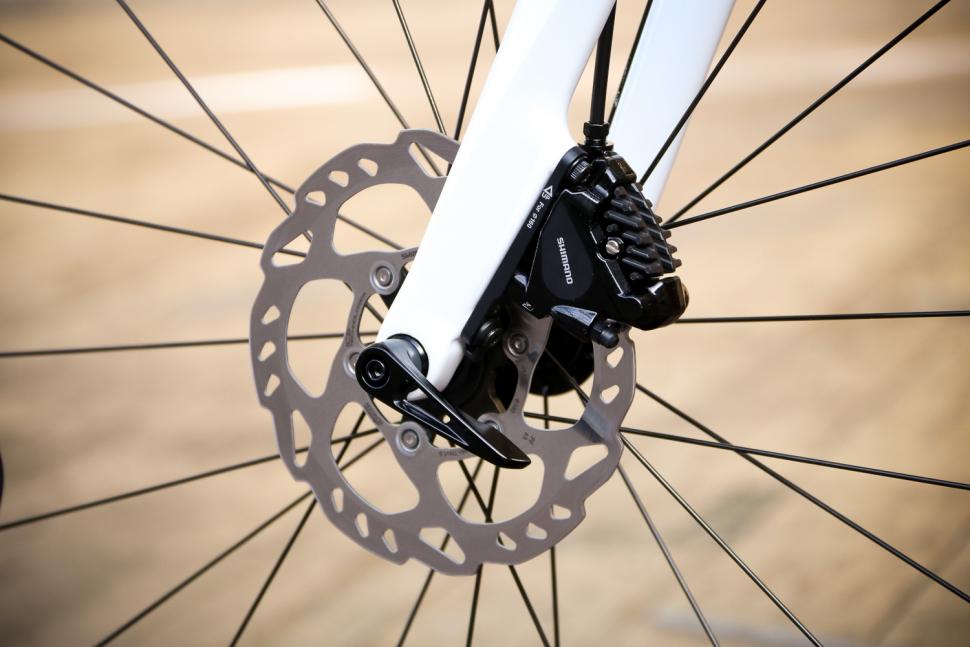
We asked Shimano about this problem and it told us that cleanly faced mounts are very important.
“As with post mount, a plane contact area (facing) always helps, as does the size of the disc (smaller is better). Centerlock rotors on good stable axle bearings (compared to 6-bolt rotors on lightweight hub axles) also help with alignment. The construction of the fork is also important (stiffness balance left/right),” said Shimano.
You'd hope a frame or fork manufacturer would make sure that the contact area was right, but in our experience this isn’t always the case.
Facing tools ensure the brake mounts on the frame and fork are smooth and level and provide perfect alignment. They're expensive and not really suitable for most home mechanics, although all good bike shops should be able to help you out here. Park Took does an adapter for its DT-5.2 Disc Brake Mount Facing Set and you can see it in action in this video.
The other solution to disc brake rub is to adjust the calliper on the frame/fork. With post mount it’s relatively easy: just slacken off the bolts, pull the brake lever and tighten the bolts to centre the calliper over the rotor.
“The range of adjustment for flat mount is the same as for post mount," says Shimano. "The difference is that the side-to-side adjustment is no longer on the calliper but in the slot hole instead. Shimano recommends that this hole is 4 x 5.2mm (+/- 0.1mm) but sometimes manufacturers don’t follow these recommendations. For the front calliper the adjustment is in the adaptor plate with the same hole dimensions.”
Not all manufacturers are adhering to the requirements as closely as they should. In many cases, the flat mount range of adjustment appears to be less than in post mount systems. We like flat mount but it does mean you are at the mercy of bike companies ensuring the mounts are manufactured correctly.
3 Disc brakes affect aerodynamics
Like any other external component, disc brakes affect aerodynamics. Some manufacturers have stated that the rim brake version of a particular bike is more aerodynamically efficient than the disc brake model, but it's not as simple as saying that rim brakes are always more aero.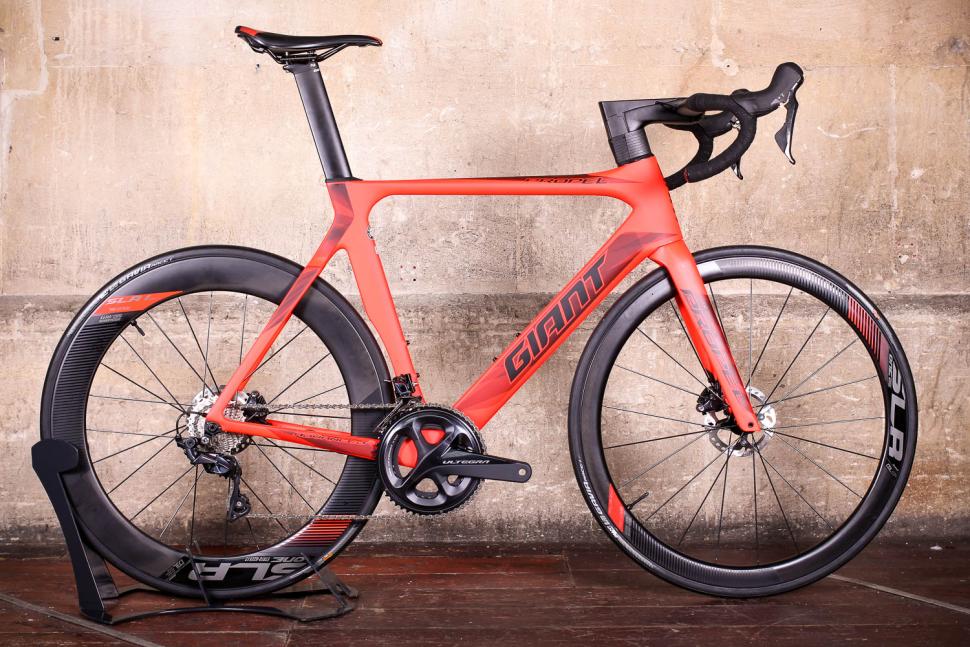
When Giant revealed its Propel Disc in 2017, for example, it said, "Engineers found that, with proper integration, a disc-brake design can actually improve aero performance compared to rim-brake configurations.
“This is because the location of traditional callipers (either in front or behind the fork crown/ legs) creates 'dirty' air'. Opening up the fork crown area (by placing the disc-brake callipers down at the hub) means that the air hitting the new disc-brake calliper has already been disrupted by the leading edge of the tyre/wheel. This effect is further enhanced by an asymmetric fork that helps smooth out airflow over the calliper.”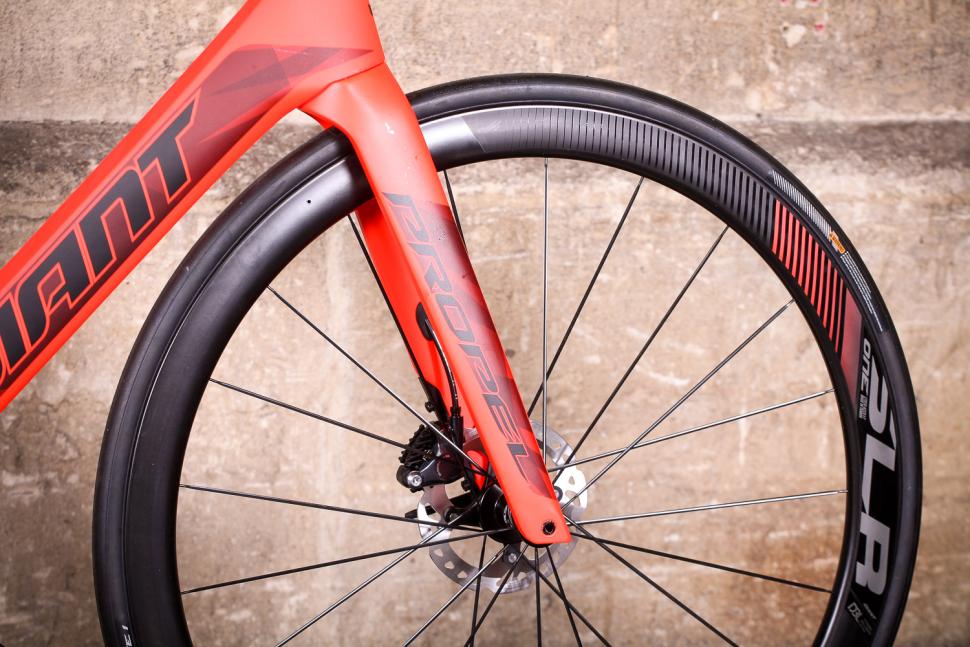
A handful of new aero road bikes, like the Cannondale SystemSix and 2019 Specialized Venge, are disc brake-only.
4 Choosing pads is a minefield
Switch to a disc brake bike and you'll eventually have to choose new pads... and that's a minefield.
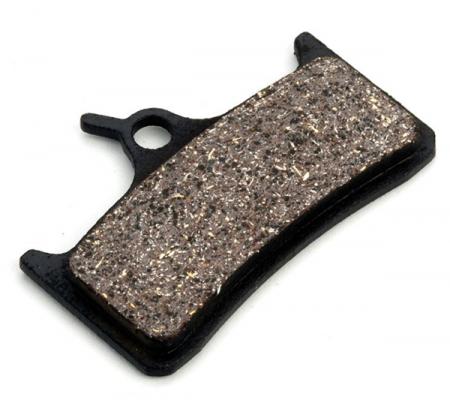
All pads are made by mixing various powdered additives with a binding agent and then squashing it all together at high heat and pressure to form a solid block on the backing pad. What's in the mix of powders has a major effect on the pad's properties.
Most new bikes come fitted with resin pads. They're made from non-metallic additives such as rubber, glass, carbon and Kevlar to provide an all-around pad that works for most people but isn't very durable under hard use.
Find out more about disc brake pads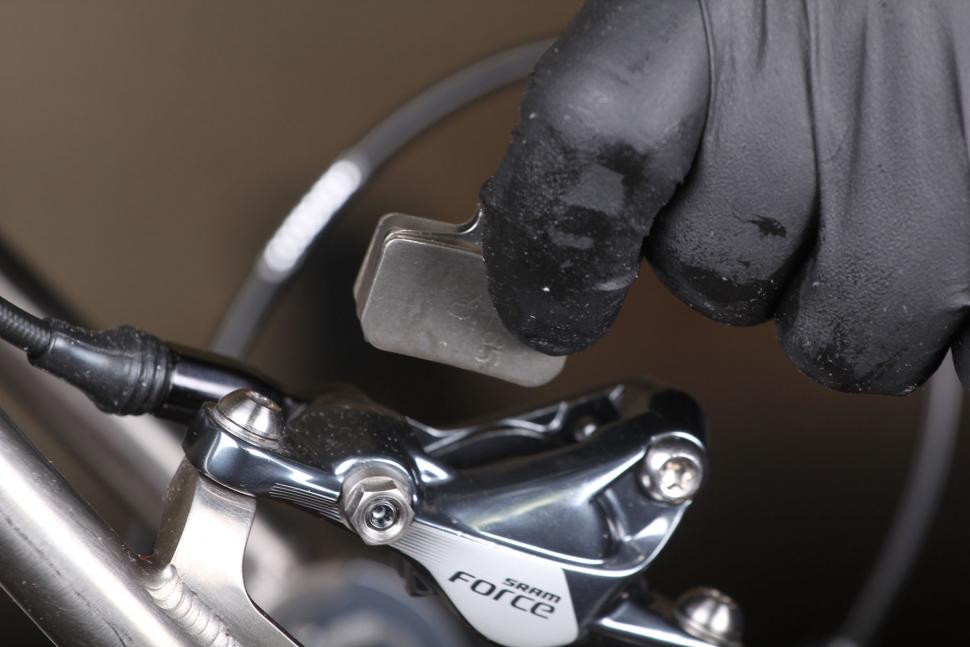
If you live anywhere hilly and/or ride in all weathers then you're probably better off switching to more expensive but much longer lasting sintered pads. Also known as metallic brake pads, these use a very high proportion of metallic fillers such as copper, steel and iron. They provide strong, effective braking at high pad temperatures although their bite can be poor when they're cold and they'll wear out your rotors quicker than resin pads.
5 You need to bed in new brakes
New disc brake pads and rotors don't immediately perform to their full potential – they need bedding in first. This is a process that distributes pad material over the rotor to increase the friction, and maximises the contact area between the two surfaces.
Here's how to look after disc brakes to get the best performance out of them
Thankfully, bedding in is pretty straightforward. Here's SRAM's advice:
"Accelerate the bike to a moderate speed and then firmly apply the brakes until you are at walking speed. Repeat this process 20 times. Then accelerate the bike to a faster speed and apply the brakes until you are at walking speed. Repeat this process 10 times. It’s important that during this process you never come to a complete stop or lock up the wheels at any point."
This will improve the performance of your brakes massively and prepare them for normal riding.
6 Maintenance involves a new set of skills
Chances are that you know how to adjust rim brakes and swap the pads, and probably how to change the cables too. You might have been doing it since you were a kid. Depending on your cycling background, disc brake maintenance might be entirely new to you.
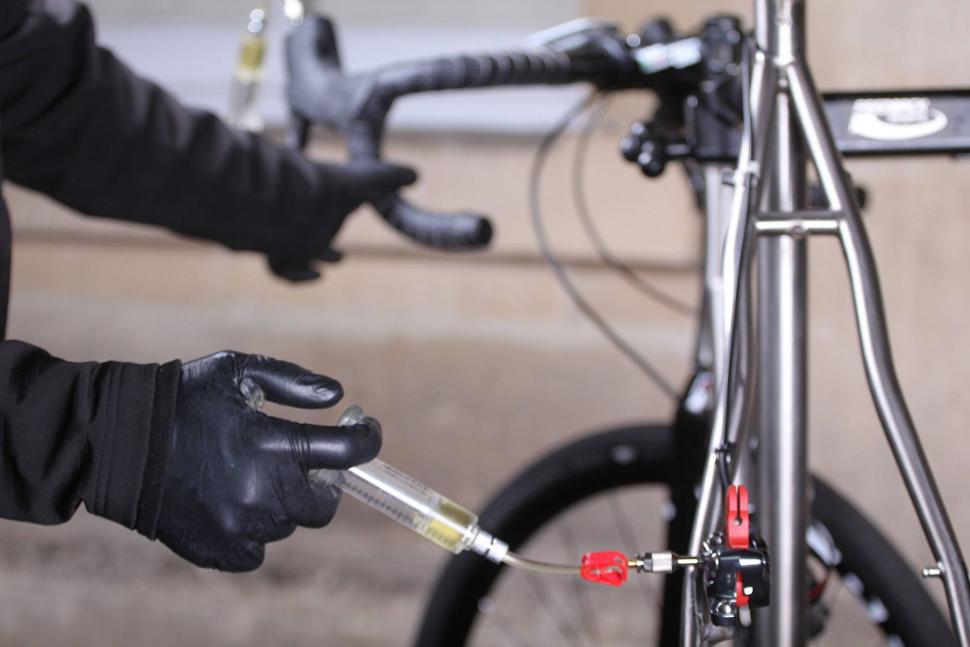 One issue you could encounter with hydraulic disc brakes is a soft and mushy feel because of air in the system. This requires bleeding and means either a trip to a bike shop or shelling out on a bleed kit. Each manufacturer has its own bleed kit. Shimano and SRAM, for example, use different techniques and fluid.
One issue you could encounter with hydraulic disc brakes is a soft and mushy feel because of air in the system. This requires bleeding and means either a trip to a bike shop or shelling out on a bleed kit. Each manufacturer has its own bleed kit. Shimano and SRAM, for example, use different techniques and fluid.
Bleeding a hydraulic disc brake system isn't the most onerous of tasks but you will need to get the hang of it while following a guide or watching one of our videos.
7 They can squeal!
It's true that rim brakes can squeal but we reckon that disc brakes are worse offenders.
The most common cause of disc brakes squealing is contamination of the rotor or pads. You have to be careful when using spray lubricants on a bicycle with disc brakes, or avoid them altogether.
Find out how to stop your brakes squealing
“Cleaning your rotors regularly with a specific (oil-free) disc brake degreaser is a good way to avoid squealing brakes," says Shimano. "Cleaning your pads too can help quieten things down — you can try some sandpaper or grinding the pads — but if the grease has soaked through the pad, you might need to replace them. Don't use a degreaser or chemicals on brake pads, though.”
It’s harder to clean disc brake pads than rim brake pads, largely because you have to remove them from the bike in the first place.
What's the best way to clean disc brakes?
Squealing pads can also be a sign that the pads are worn out. It's a little more tricky to take a close look at disc brake pads than it is with rim brake pads, although taking the wheel out can make the task easier.
8 Rotors wear out... eventually
One of the advantages of disc brakes is that they don't wear out the rims of your posh carbon wheels, but don't forget that you will wear out the disc rotors. Thankfully, rotors aren't particularly expensive.
Different brands give different minimum thicknesses for their rotors (the figure is often printed on the rotors). Go beyond that limit and things become dangerous, so keep an eye on 'em.
Mat has been in cycling media since 1996, on titles including BikeRadar, Total Bike, Total Mountain Bike, What Mountain Bike and Mountain Biking UK, and he has been editor of 220 Triathlon and Cycling Plus. Mat has been road.cc technical editor for over a decade, testing bikes, fettling the latest kit, and trying out the most up-to-the-minute clothing. He has won his category in Ironman UK 70.3 and finished on the podium in both marathons he has run. Mat is a Cambridge graduate who did a post-grad in magazine journalism, and he is a winner of the Cycling Media Award for Specialist Online Writer. Now over 50, he's riding road and gravel bikes most days for fun and fitness rather than training for competitions.
Latest Comments
- newbankgyratory 1 hour 40 min ago
Here's an idea:...
- newbankgyratory 1 hour 47 min ago
A possible answer to the conundrum:...
- Sriracha 5 hours 40 min ago
https://velo.outsideonline.com/road/road-racing/technical-faq-bottom-bra...
- ktache 6 hours 27 min ago
Or lezyne tubeless pro plugs. I've got a set, but had no chance to try them out. I want to use those mushrooms.
- chrisonabike 7 hours 9 min ago
That's a bit forward! But yes; pop up any time you like. Except when the buses have been at the bridges.
- TheUntypicals 9 hours 13 min ago
If businesses are suffering on Linthorpe Road it is entirely their own fault, most of the destination type shops moved out long before the cycle...
- giff77 9 hours 29 min ago
So where is the entitlement of wanting to get from A to B in relative safety? The city centre is dire regarding cycling infrastructure and while...
- whosatthewheel 9 hours 34 min ago
I live in a mostly flat town and can maintain 22-25mph. Makes no difference to drivers who still overtake frantically even only to slow down to my...
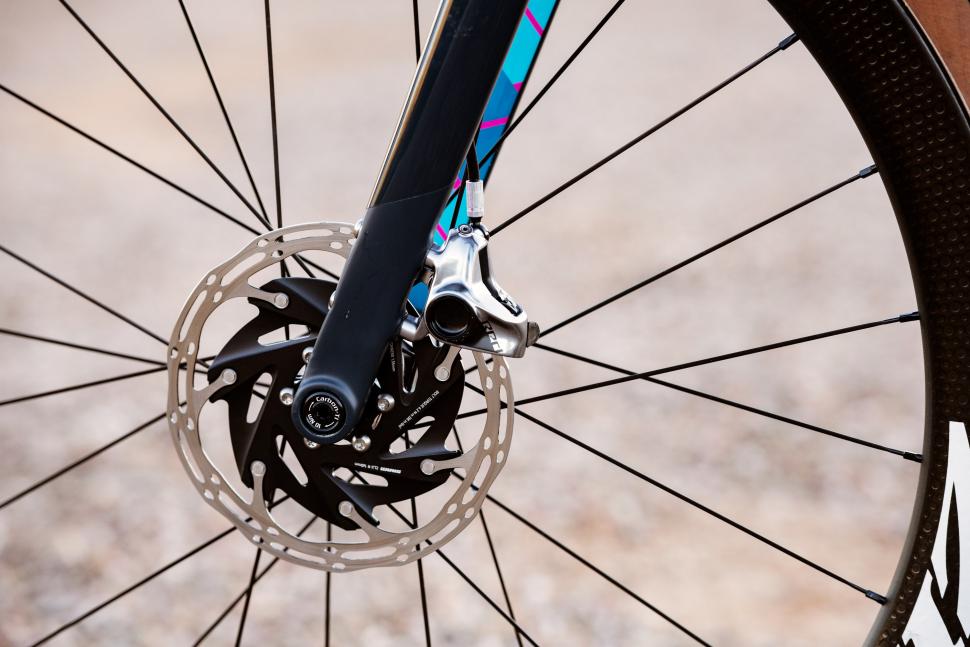
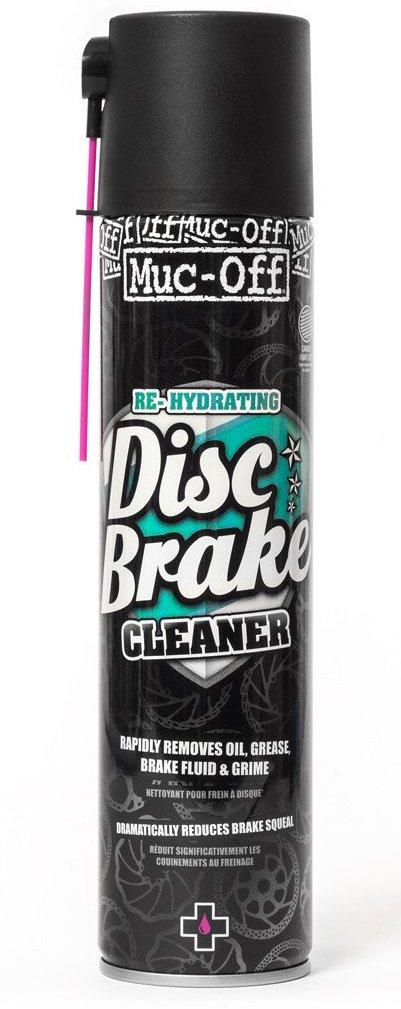
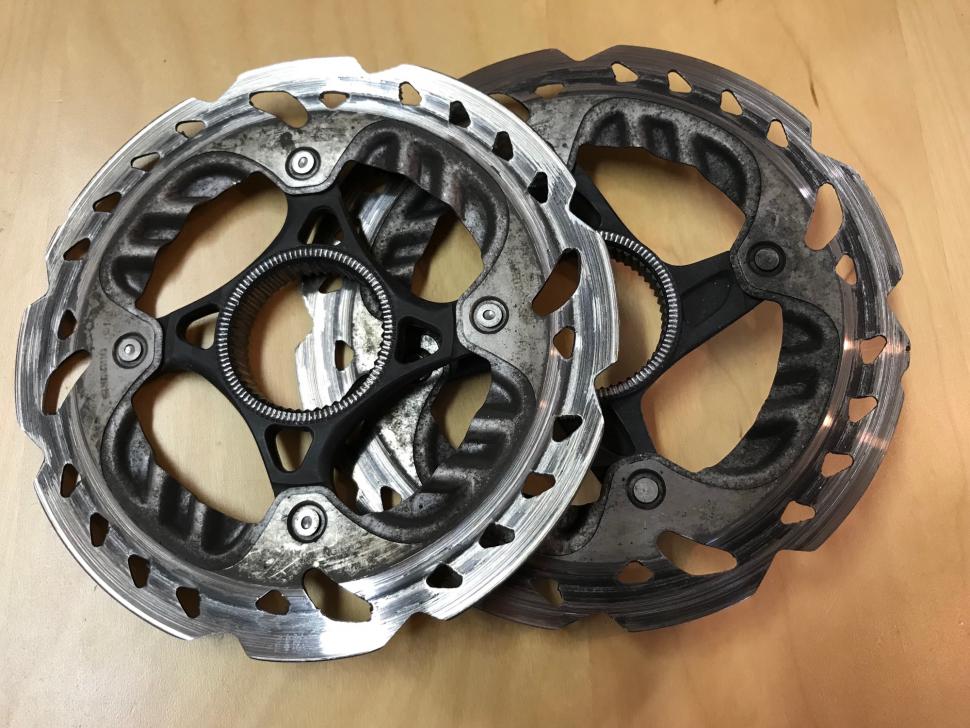
Add new comment
206 comments
What a load of guff. Done 5k on my disc bike now and can say that hydraulic discs are objectively better in almost every respect than all other forms of braking. Not necessarily enough to make you sell a bike and buy one with discs, but definitely reason to never buy a new rim brake bike again.
Actually one thing they are worse at is being twatted by idiot baggage handlers. Arrived in Bormio ahead of the Stelvio Santini and discovered a bent rotor. Managed to get another one OK, no problem with fit, just whacked it in there and was great, no rub or owt (existing shimano ultegra calipers, new dura-ace rotor as that's all the shop had). I always take them off before travel now.
Mechanical discs are a bunch of arse though, and the hybrid mechanically activated hydraulic caliper thing that TRP do is only marginally better.
Long drop calipers are really useful (28s and full guards) but absolutely jarg at braking. Been doing a lot of miles on the disc bike recently, got back on the kinesis with long drops and rode into the back of a van at some traffic lights. Night and day difference.
in summary:
hydraulic discs >> rim brakes >> mech discs >> long drop rim brakes
What a load of guff. Done 5k on my disc bike now and can say that hydraulic discs are objectively better in almost every respect than all other forms of braking. Not necessarily enough to make you sell a bike and buy one with discs, but definitely reason to never buy a new rim brake bike again.
Actually one thing they are worse at is being twatted by idiot baggage handlers. Arrived in Bormio ahead of the Stelvio Santini and discovered a bent rotor. Managed to get another one OK, no problem with fit, just whacked it in there and was great, no rub or owt (existing shimano ultegra calipers, new dura-ace rotor as that's all the shop had). I always take them off before travel now.
Mechanical discs are a bunch of arse though, and the hybrid mechanically activated hydraulic caliper thing that TRP do is only marginally better.
Long drop calipers are really useful (28s and full guards) but absolutely jarg at braking. Been doing a lot of miles on the disc bike recently, got back on the kinesis with long drops and rode into the back of a van at some traffic lights. Night and day difference.
in summary:
hydraulic discs >> rim brakes >> mech discs >> long drop rim brakes
Disc brakes - unnecessary hassle with virtually little improvement in braking - in the wet.
I have a hydaulic disc brake Winter bike. It would be fine if it was rim braked like my other bikes.
I was out on a rainy, muddy, gritty ride in North Norfolk with a mate yesterday. We both have Ultegra Di2. He has discs. I have rim brakes - on alloy wheels for rain riding.
His braking ability was far superior to mine, and though I'm the taller, heavier rider I don't think that this is the major factor.
I didn't like the grinding noise coming from his disc area as the grit started to get stuck between the discs and pads....I could barely listen to it. When it happens on my brakes they get a squirt from my water bottle... whatever is in it...
Why is noise such a big problem?
If it was an article about a Campag freewheel, y'all would be waxing lyrical that the sound of a washing machine full of bricks is actually one of Italy's most treasured exports, and it would bring a tear to old Tullio's eye when he recognised the telltale sound - like a misfiring cement-mixer crossed with a hippo firing a machine-gun - from 10km away.
Yes, disc brakes sometimes make noise in the wet. No biggie. So do rim brakes, quite often. I prefer disc brakes because they're better at braking in the wet, and surely braking performance when you need it most is a pretty important criterion when you're choosing the brakes on your next bike.
Disc brakes: What a faff!
I've only had one bike with disc brakes- I had never even tried any out until it arrived. TRP Spyres were immediately a revelation. The original pads lasted a year of heavy use over a lot of hills and big trips with a trailer- to my surprise the front and rear expired at the same time. They're much easier to change and centre than rim blocks. The front squealing in the wet soon abates on any individual occasion, but I used to have insoluble squealing problems with rim brakes. Mainly, the braking is always there, wet or dry, road muck or no, and that rim-destroying grinding noise is gone. I don't even get any rotor destroying noise because it's only a gravel bike which hardly even goes through off-road mud. I'm not intending to ever buy a new bike without discs.
Most of my cycling is urban commuting.
The main benefit (for me) of disc barkes is the almost instant stopping power.
1:and?
2: correct setup and maintenance eliminates brake rub, period..
3: disk brakes are known to be aerodynamically efficient because frame builders can make frames aerodynamically efficient BECAUSE of the presence of disk brakes
4: choosing pads? Come on, it is not health insurance plan to choose! There is one type that fits your calipers, you know it, you buy every time, thats it.
5: yes you have to bed them in but that is not rocket science, a few brake pulls during ride will bring them to adequate shape, and after a couple of rides in full shape.
6: yes, you need some skills, as with everything on modern bicycles. You will gain some level of wisdom too..
7: they will squeal, maybe, (mines don't, I don't know about yours) but they will brake! Rain snow, you name it. Regular brakes? Oh noooo...
8: yes they will, thank God! Imagine that your rims wear! Oh wait...
Disk brakes decelarate better and linearly that rim brakes, pads wear out faster on hilly and mountainous areas than rim brakes, the do brake when wet, they are more prone to overheating, they are more expensive, they have cleaner cooler looks, they help wheel manufacturers build better and stronger wheels that look cool too, and at the end of the day, they help us move forward into the 21 century cycling.
Disc brakes from my experience have been an absolute nightmare, and personally would never have a road bike or commuter bike with them again. Oil leaks, padd contamination, rotor replacement, disc brake replacement, rubbing, ive had it all and its expensive. Especially as i commute through urban streets where pads get easily contaminated with various residues from vehicles, and when that happens you might as well have no brakes.. Im happy with rim brakes, they have always worked fine, are cheap and easy to service. But the bike industry have to keep selling you something dont they, from lightweight carbon bikes to aero bikes to (now) all round bikes, gravel, tubeless (also a waste of time on high pressure road wheels)
Never had a disc brake bike, but hired an orange alpine 5 2018 for a day in forest of dean, that had discs and it was awesome. Offroad we are never going to see a serious bike with rim brakes ever again. Dont recall any brake squealing and it was a bit drizzly on the trails. I find with sti levers i cant get enough leverage to fully apply mechanical rim or disc brakes when on the hoods, so next drop bar bike i buy will probably come with hydro discs. Also when grit gets caught in a rim pad and grinds a chunk of rim away, that is super annoying. Had to replace a couple sets of hydro discs for mechanical discs for some friends that used their mountain bikes so infrequently that all the brake fluid drained out between using them. One bike had hope hydros and the other i think shimano, but both suffered the same fate of disappearing brake fluid. Biggest problem with discs and rigid forks is that the only practical fork is carbon and i dont trust forks held together with glue.
If you have a great bike with rim brakes there is no need to bin it and buy a disc brake bike.
If you're in the market for a new bike, not buying one with disc brakes is like asking for a car with drum brakes.
Road CC Luddites best sums up this article.
I have tried disk brakes and apart from for wet, off-road, they are a pain in the arse. For road bikes I'd always recommend rim brakes.
Lighter, easier to maintain and more aero (on most framesets). I use Campag Skeleton brakes and can stop hard enough to throw myself over the bars. I definitely have no need to brake harder.
If you cycle in heavy rain a lot then get disks. If not then don't waste time, money or add weight to your bike. There is no point on a road bike.!
And don't tell me that Ineos don't use the best equipment.
Trivia question: How many grand tours have been won on disk brakes?
I'm not going to get into any debates about how effective disc brakes are in comparison to rim brakes but I haven't seen anyone write about the aesthetics.
It's only my opinion but I find frames without rim brakes ugly. It looks like something's missing. I assume this is due to a half century of only having and seeing rim brakes but I can't imagine changing my view now.
Rim brakes have served me well so I'm sticking to them - and I prefer how my bike looks with them.
It's been a couple decades since I pinned a number on, US Cat. 2 when I retired, but I've come to be very skeptical of what comes out of the industry as 'the next big thing', and disk brakes and tubeless tires validate my suspicions.
I haven't tried either simply because they both appear to unnecessarily complicate and pollute what for me, was the beauty of a bicycle; its simplicity. I did graduate to brifters and find them adequate, though when I had to pay US$200 for a new right Shimano lever (because I went a step too far in trying to repair it and rendered it useless, because I didn't have the insanely complicated machine required to reassemble it), I seriously questioned why these were that useful. If I still raced maybe I'd see it.
Another thing I've come to learn about the industry is that they see cyclists as a demographic with money to spend and googly eyes for shiny things (which is somewhat true). So I see them a bit as predators, in that sense.
Now give me back my beautiful Modolo carbon downtube shifters!
I prefer rim brakes:
1. If disc brakes rub slightly it can be hard to detect, rim brakes much louder and I will stop and adjust.
2. I can stop perfectly OK with rim brakes to the point of locking up both wheels. I can't see disc brakes doing any more than that.
3. I can modulate my braking power more effectively with rim brakes.
Horses for courses: I have rim brakes on my road bike, hydraulic discs on my MTB, and cable operated hydraulic discs on my loaded tourer.
They all work OK - the latter option gives me the finer control of cable with power of hydraulic.
I wanted some rirm brakes but
I have been finding that my wheel bearings have (mavic aksium) been wearing out as fast or slightly faster than my wheel rims so I guess disks would not provide the longievity that I had hope from them (unless I find a way of chaning bearings).
I find that tyre to road traction is the limiting factor when braking -- I can make myself skid with my rim brakes -- especially in the wet, so I wonder how rim, or any other, brakes would improve stopping speed.
I am lucky enough to have 2 road bikes at the moment. But no space :).
1 bike has some well regarded dura ace 9x rim brake callipers. The other with Ultrgra disc brakes. Both have carbon wheels.
The braking performance is barely comparable between them. In the wet it's not fun at all on the rim brake bike
if the discs and callipers are not set perfectly though then the braking can be ineffective, noisy or both on the second bike. I've owned 2nd hand bikes with the same ultegra disc setup previously where the brakes were worse than good rim callipers.
No need to change your bike unless there is a problem, or attempting to ride carbon wheels in the wet! (Mine are Roval clx32 without the special rims like zipp etc)
I worry that these types of articles, including the "Why your next bike should be an XYZ bike", could be potentially misleading to beginner cyclists who are actually looking for proper advice? Just the headline alone might be all some people look at!
Obviously this is a contentious subject and everyone has their preferred system but I think a more balanced headline and article could be more useful? For those of us who already have our opinions it is obvously just good 'clickbait' for the site, to drum up a bit of healthy 'debate'!!
At the end of the day, in dry weather (i.e. most rides that normal people participate in), disk brake road bikes are basically slower. They are heavier and less aero. so considering rim brakes are easier to maintain, cheaper and don't make irritating noises there are plenty of reasons to prefer them.
The industry trying to force us onto a slower technology is irritating. Expect to see companies that support riders who prefer rim brakes to sell a lot of bikes. I have a Merck bike which has threaded bottom bracket, external cable routing and rim brakes. It is lighter, more aero, easier to maintain and doesn't squeal when you brake, creak at the bottom bracket, cause me problems installing new bottom bracket, need hydraulic fluid, I don't have to faff about guiding cables inside the frame, its cheaper to maintain, the brakes never rub, I don't have to clean rotors etc., etc.
Loads of modern "improvements" are being pushed onto you by manufacturers. The latest is 12 speed. Not needed. Electronic shifting? Not needed. More expense for zero performance improvement and additional maintenance requirements like batteries. You can build a 10 speed bike lighter than the UCI weight limit without any of these expensive rip -offs. And it will be quicker to boot. And you can just get on it and ride. Stop feeding the monster. I'm all for technologies that are a genuine improvement in performance. But not if they are just hassle.
Oh, and the answer to my trivia question below: How many grand tours have been won on disk brakes? The answer is none.
Are rim brakes an advantage? Well the team who focuses most on marginal gains (Ineos/Sky) think so. They are convinced that rim brakes are faster than disks when it isn't raining on any parcour! That is the truth.
It's a while on this topic since we had one of these, so it's time for a balancing refresh: for people riding routine non-flashy bikes in rural areas with muddy roads in what might well turn into bad weather it's no competition. Disc brakes are the biggest cycling safety advance for decades. I have a cheap bike with cable TRP Spyres- absolutely wonderful, trouble free, no grinding noises from the rotor, hardly ever squeak, much easier to adjust for perfection than the rim brakes I have had to put up with for 50 years. I have just had to do something to the rear hub, and found the disc rotor was in a slightly different position and was rubbing on the inner pad. I thought I might have to alter the cones a tiny bit on the 14 mm hollow axle (which takes the 12 mm through-axle), but Mr Shimano thought of this when he invented the flat mount: loosen the bolts with 4 mm hex, nudge the caliper a bit, job done. All this and reliable braking whatever the weather. Joy!
I wouldn't go for disc brakes, after I've finally worked out how to fettle V-brakes to my liking!
Not taking sides in the disc brake safety debate as I have never personally used them. But several years ago when the pro peloton started to use them the mantra then was that it would make riding in the peloton much safer. What a load of bollocks that turned out to be!
Happy to see both sides on this. I'm a converted disc braker after 5 years of all weather commuting and about 15500 miles and three pairs of wheels.
Same mileage 2 pairs of discs circa £90 v 3pr wheels at circa £825. Try getting rims on their own plus build costs....nah!
Performance is waayyy better on discs but yes binding rub and damp sqeaking are irritating. Rims squeal is as bad.
Just traded in my 2021 TCR Advanced disc on the previous model so I could get one WITHOUT disc brakes (The only 2021 Advanced available in Australia is the SL). Despite 12 months of repeated visits to my bike shop, they were not able to eliminate disc brake rub. It was only intermittent, but came at the worst time - climbing at maximum effort. I am surprised that Shimano took a product to market with an unfixable problem.
I've got a word of warning about rim brakes. I used them for 40 years with only one problem, buckled rims, so I just had my local bike shop build me wheels with the cheapest alloy rims and got them trued if needed.
Then I converted one of my bikes to a front motor e-bike and fitted Schwalbe Marathon Tour Plus tyres as they can take a lot of weight (heavy e-bike & fat me).
In a few months my rear rims braking surface was about 50% worn and it exploded around the wear line nearly spearing me in the leg. I'd just left work and had barely touched the brakes and i put it down the the high pressure in the heavy duty tyres, high weight and cheap rims. I had the wheel rebuilt with a cheap but name brand rim and in less than a year that rim had a small crack at the wear line so I binned that rim too. I ended up with a Ryde Andra 30 CSS rim which has never worn at all but it put me off rim brakes forever.
I know most cyclists aren't over 17 stone, don't ride heavy commuter e-bikes and probably don't put the max pressure in their tyres like me but personaly I'd never buy another bike with rim brakes, whatever the downsides.
I thought I had made peace with disc brakes, after all, nobody is forcing me to use them.
Oh, but wait, they are 😖😖 Basically any frameset I might want to buy that would fit me and I can afford is now disc only, so I am now being invited to spend significantly more on a heavier system (wheels brakes and frame) that I neither need not want. Not impressed.
Am still baffled that people struggle so much with rim brakes, I somehow survived some mad, rubble strewn descents during a biblical downpour at a recent Lake District gravel event on my rim brake gravel bike, and with zero squealing, unlike most of the folks with disc brakes 🙄
Wtf does that even mean.
"Objectively better" is a good choice of phrase. I'm sure discs work better in the wet than my rim brakes, but I still enjoy riding the rim brake bike more in wet conditions due to the lack of squeal from cold wet rotors.
Do I have to descend slightly more cautiously? Possibly. Will I have to replace my rims after 3 seasons? Probably. Do I still enjoy riding it more? Definitely. Perhaps that makes rim brakes 'subjectively' better for me.
Pages